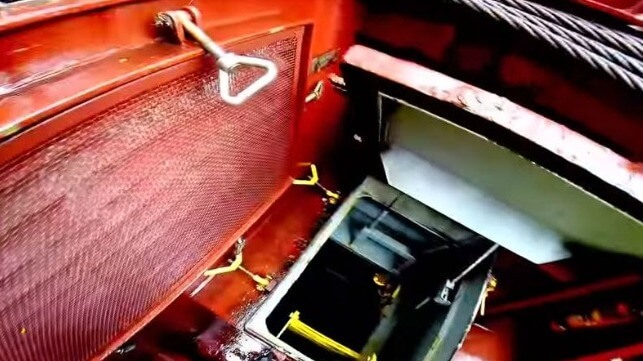Two Men Suffer Asphyxiation in Cargo Hold Full of Palm Shells

Authorities in Japan have reported an unusual case of cargo hold asphyxiation aboard a bulker at the port of Ishinomaki, 200 miles to the north of Tokyo.
Most cases of confined space asphyxiation or toxic gas poisoning occur after the compartment, hold or tank has been closed for a period - for example, when a hold is entered at the end of a journey, a normally-enclosed compartment is opened for maintenance, or after a cargo is fumigated in a closed hold. These are exceptionally dangerous hazards because they are invisible, often odorless, and quickly incapacitate or kill a crewmember. One casualty often turns into multiple as brave shipmates enter the space and attempt to rescue their colleagues.
The danger aboard this particular ship, however, appears to have developed suddenly and unexpectedly during cargo operations. At about 0730 hours on May 20, a worker discovered two stevedores unconscious inside the hold of the bulker Ever Felicity, a classic swinging derrick freighter built 17 years ago. The Felicity was alongside the pier at Ishinomaki, and the workers had been working a cargo of palm kernel shells. They were moving a piece of heavy equipment into the hold when they collapsed.
One victim, a 57-year-old male, was recovered from the hold in an unconscious state. He was taken to the hospital in critical condition. The second worker, aged 53, has since recovered.

that matters most
Get the latest maritime news delivered to your inbox daily.
Shipping association BIMCO has previously warned of the risks of carrying palm kernel shells. The woody, fibrous husks are a byproduct of palm oil production, and have become a common biomass fuel cargo for "green" power production. However, they have unique risks when stored in bulk. They contain natural oil residues from the palm oil process, and this oil slowly oxidizes, leading to self-heating, oxygen depletion and the production of carbon monoxide and methane, according to BIMCO. The combination makes the substance a fire hazard and an asphyxiation hazard at the same time. "This can pose a serious risk to the safety of the crew or anyone entering the cargo spaces as well as adjacent areas," warned BIMCO.
The Japan Coast Guard is investigating the casualty aboard Ever Felicity, and is looking into whether there is a link between the palm shell cargo and the two victims' symptoms.
